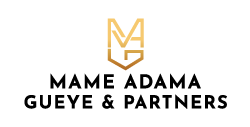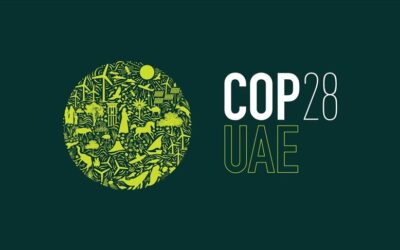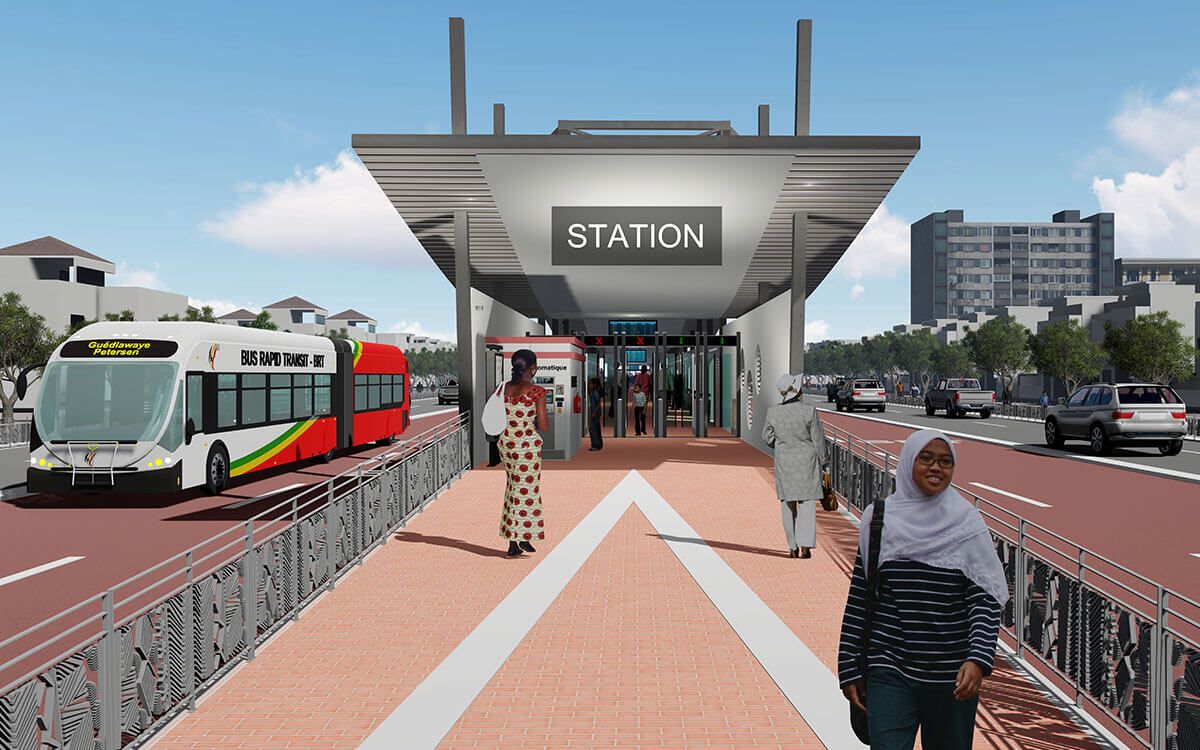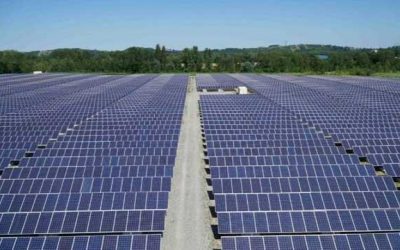Nziengui Alioune Mboup, of Mame Adama Gueye & Partners Law firm .
Under Law No. 2019-04 of February 1, 2019, Senegal has begun to establish a legislative, regulatory and institutional framework for local content in the hydrocarbon sector.
This law established the concept of local content, defined as all initiatives taken to promote:
- the use of national domestic goods and services;
- the development of the participation of national labor, technology and capital in the entire value chain of the oil and gas industry.
Its main objectives are:
- to increase local value-added and local job creation in the oil and gas industry value chain through the use of local expertise, goods and services;
- to promote the development of a skilled and competitive local workforce;
- to develop national capacity in the oil and gas industry value chain through education, training, technology and know-how transfer, and research and development;
- to promote the strengthening of the national and international competitiveness of Senegalese companies;
- to establish a transparent and reliable monitoring and evaluation mechanism for local content obligations, in line with national public policies;
- to strengthen the participation of the population in the value chain of the oil and gas industries.
The provisions of law 2019-04 of February 01, 2019 on local content in the hydrocarbon ;apply to all contractors, subcontractors, service providers and suppliers involved in oil and gas activities. sector.
The law has instituted the following tools to implement local content::
- a national committee for monitoring local content (CNSCL);
- an electronic platform as a means of launching calls for competition for the supply of goods and services related to oil and gas activities;
- a support fund for local content development.
The Government of Senegal has completed the process begun in 2019 with the enactment in October 2020 and February 2021 of the following decrees:
(i) Decrees on the Local Content Development Support Fund (LCDF)
- Decree No. 2020-2048 of October 21, 2020 establishing the terms and conditions for the funding and operation of the FADCL
- Decree No. 2021-248 of February 22, 2021 establishing the terms and conditions for the funding and operation of the FADCL
The initial decree did not provide a regulatory framework that would allow adequate management of human capacity building missions. The second decree therefore made changes to the missions, organization and composition of the Fund.
(ii) Decrees setting the terms and conditions for the participation of Senegalese investors
- Decree No. 2020-2065 of October 28, 2020 setting the terms and conditions for the participation of Senegalese investors in companies involved in oil and gas activities and classifying upstream oil and gas activities under the exclusive, mixed and non-exclusive regimes
- Decree No. 2021-249 of February 22, 2021 amending Decree No. 2020-2065 of October 28, 2020 establishing the terms and conditions for the participation of Senegalese investors in companies involved in oil and gas activities and classifying upstream oil and gas activities in the exclusive, mixed and non-exclusive regimes
Article 11 of the initial decree provided an annex classifying activities by regime. The purpose of the second is to give this annex the same legal value as the initial decree.
(iii) Decree on the National Local Content Monitoring Committee
- Decree No. 2020-2047 of October 21, 2020 on the organization and operation of the National Local Content Monitoring Committee
The decrees adopted in 2020 were published in the Official Gazette of the Republic of Senegal on March 4, 2021 and those enacted in 2021 were published in the Official Gazette of March 6, 2021.
The innovations brought by Law No. 2019-04 and implemented by these various decrees are the following:
- Obligation to register a company under Senegalese law that opens its share capital to Senegalese investors;
- Creation of a National Local Content Monitoring Committee and a procurement procedure that promotes transparency and local content;
- Creation of a Local Content Development Support Fund ;
- Promotion of local labor and goods & services.
1. Obligation to register a company under Senegalese law with a share capital opened to Senegalese investors
The Law No. 2019-04 sets out in its Article 8.3 two institutional prerequisites for the promotion of local content by requiring that:
- any investor wishing to act as a service provider or supplier must register a company under Senegalese law registered in the Trade and Personal Property Credit Register;
- the share capital of the said company be opened to Senegalese investors according to the terms and conditions set out in Decree No. 2021-249 of February 22, 2021.
The level of participation interest of Senegalese investors in the share capital of companies is clearly detailed in the annex classifying the different oil and gas activities, which indicates the minimum percentage of share capital reserved for them.
The annex also specifies the minimum percentage of local staff to be employed depending on the regime and the category of goods and services.
In accordance with Law No. 2019-04, the National Local Content Monitoring Committee reserves the right to change these ownership percentages.
Oil and gas activities are divided by the said schedule into 13 categories namely:
- engineering services ;
- materials procurement and supply;
- manufacturing and construction;
- drilling support activities;
- subsurface exploration support activities;
- support activities for offshore transportation and supply and waste management;
- support activities for people, installation and health, safety and environment;
- support activities for marine operations and installations;
- inspection, survey, testing and certification services;
- expertise and consulting;
- finance and insurance;
- maintenance and repair activities.
They are subject to three regimes established by article 8.4 of law No. 2019-04:
- The exclusive regime: which concerns activities for which the State of Senegal, in order to reduce the quantity of imported goods and services, reserves the right to grant exclusive service authorizations, subject to a guarantee of service quality and a price framework;
- The mixed regime: which refers to activities requiring an association of a foreign company with a local company;
- The non-exclusive regime: which covers activities with little potential local content.
2. Creation of a National Local Content Monitoring Committee
The National Local Content Monitoring Committee’s mission is to (i) coordinate and supervise the development of the local content strategy document and (ii) ensure the implementation of the local content development strategy. It aims at achieving 50% local content in 2030 in the context of oil and gas activities.
Law No. 2019-04 established it as a leading body overseeing the entire procurement process. Thus, any contractor, supplier, subcontractor or service provider carrying out an activity in the context of an oil project must submit a local content plan to the CNSCL. Its content and method of submission is defined by the National Local Content Monitoring Committee guidelines. It must be updated every year and must contain in particular:
- a report detailing the company’s achievements in promoting local content over the past twelve (12) months;
- a description of the company’s forecasts for promoting local content over the last twelve (12) months;
- a report presenting the financial and technical efforts made to gradually reduce the use of personnel, capital, technology, goods and services or services not originating from Senegal.
The National Local Content Monitoring Committee shall analyze the local content plan within ninety (90) days of its receipt and shall forward to the bidding company its comments and observations for consideration in order to comply.
An Electronic Matchmaking Platform shall be set up through which all tenders relating to oil and gas activities shall be published, unless prior authorization is obtained from the CNSCL.
Any contractor, supplier, subcontractor or service provider publishes all contracts relating to one or more oil or gas projects on the electronic platform, unless prior authorization is obtained from the National Local Content Monitoring Committee .
The National Local Content Monitoring Committee is thus set up as a control body carrying out (i) an a priori control and (ii) an a posteriori control.
(i) Prior control
Companies must submit an annual procurement plan to the Ministry by the end of the first half of the year n-1 at the latest, indicating:
- the contracts to be awarded in year n ;
- the local content indicator expected for each contract;
- a summary of the norms and standards applicable to each contract.
(ii) A posteriori control
At the end of each calendar year, companies must prepare a report on the implementation of their local content plan submitted to the Technical Secretariat of the National Local Content Monitoring Committee, the analysis of which may lead to corrective measures and sanctions.
3. Creation of a Local Content Development Support Fund
Placed under the financial supervision of the Minister in charge of finance and the technical supervision of the Minister in charge of hydrocarbons, the Local Content Development Support Fund has legal personality and financial autonomy.
Its mission is to support the implementation of the local content policy in the hydrocarbons sector. Decree No. 2021-248 specifies its operating procedures.
Are eligible to the fund:
- any legal entity meeting the criteria of a local company as defined in the decree relating to the participation of Senegalese investors and operating in the oil and gas sector; and
- any natural person of Senegalese nationality carrying out an activity related to the oil and gas sector.
Decree No. 2021-248 also specifies the areas in which the fund’s resources are to be allocated, as well as its accounting and control rules.
4.Promotion of local labor and goods and services
In order to promote local content, a principle of national preference is established.
Thus, Senegalese personnel has exclusive priority for local employment and training in any project resulting directly or indirectly from oil and gas activities.
Consequently, any position to be filled at the national level must be the subject of two (02) calls for tender reserved exclusively to nationals. It is only in the event of unsuccessful tender that it can be opened to the international market. Moreover, a local company cannot be rejected on the principle of “the most advantageous offer” provided that its price does not exceed that of the lowest offer by more than 10%.
Also with the aim of promoting local labor, the law has imposed an obligation to develop a succession plan for approval by the National Local Content Monitoring Committee for any contractor, subcontractor, service provider or foreign supplier holding a national position filled through international bidding. The purpose of the succession plan is to define the maximum period of time in which the accompaniment by national employees trained to the required level of competence for the purpose of gradually replacing non-national employees will take place.
Funding for the Senegalese staff training program is provided by the Local Content Development Support Fund.
The law also establishes the same principle of national preference for insurance, reinsurance, financial and intellectual services by requiring priority use of local resources. It is only when the expected capacities or skills are below the required international standards that the use of foreign companies is authorized, and this in a controlled manner.
About Me Mame Adama Gueye & Partners law firm

Founder of the law firm Mame Adama Gueye & Associé (MAGA) in 1994, Mame Adama Gueye has recently created the law firm Mame Adama Gueye & Partners (MAGP) in association with the members of the team that made his international reputation. ince 2003, Mame Adama GUEYE has been individually ranked as one of the best business lawyers in Senegal by Chambers Global, a reference publication edited in London (www.chambersandpartners.com).



